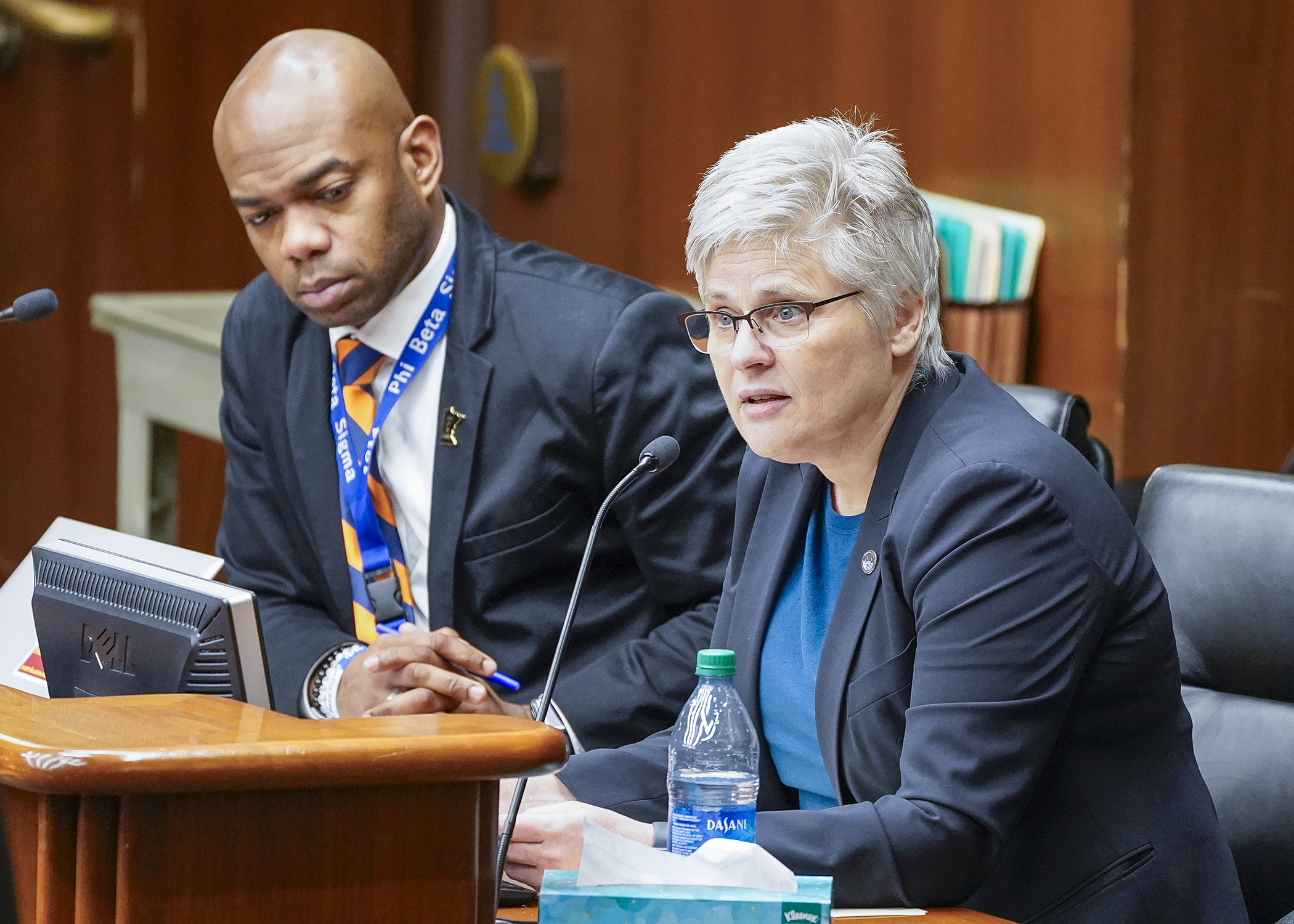Measure to ease rules on obtaining postconviction relief heads to House Floor

Marvin Haynes walked out of the Stillwater prison in December a free man after spending nearly 20 years behind bars for a murder he didn’t commit.
His innocence was determined after he finally got a new day in court, which his family and the Great North Innocence Project had been working to accomplish for many years.
Rep. Cedrick Frazier (DFL-New Hope) sponsors HF2400 that would relax rules governing exceptions to the two-year statute of limitations on obtaining postconviction relief – the legal term for defendants getting a second chance to prove their innocence based on newly uncovered evidence.
“However, this bill is not just about legal technicalities. It is about ensuring that individuals who have been wrongfully convicted have a chance at justice,” Frazier said.
The House Public Safety Finance and Policy Committee approved the bill, as amended, on a voice vote Thursday and sent it to the House Floor.
Frazier noted the arguments that can be raised in a petition for postconviction relief are very narrow and most petitions must be brought within two years.
The bill would leave the two-year statute of limitations intact but remove the current high legal standard of clear and convincing evidence that must be met before a person could bring a petition for postconviction relief.
Frazier called that standard “simply unreasonable.”
“Many cases do not lend themselves to this type of proof, and as a result, people with serious claims are kept in prison and out of the court due to a procedural technicality that has nothing to do with the merits of the case.”
In legal terms, the bill would specify that the two-year limit for when a person can bring a petition for postconviction relief does not apply if newly discovered evidence provides the factual predicate — a fact that makes other facts more probable — for one or more claims for relief.
Frazier said the wrongful conviction of Haynes is a perfect example of why the law needs to change.
Haynes was arrested for murder in 2004 at age 16. He was convicted in 2005 and spent nearly 20 years in prison before he was released last year when a judge ruled police had improperly conducted the photo lineups they showed to eyewitnesses.
But to get his case before a judge, Hennepin County Attorney Mary Moriarty had to take the unusual legal step to waive the two-year statute of limitations on his case.
Moriarty recounted for the committee how she felt sick to her stomach when examining his case file and realizing police misconduct kept an innocent person in prison for nearly two decades and that an unreasonably high standard of evidence almost didn’t end that injustice.
“We must be open to believing that there can be new evidence in old cases,” she said.
Related Articles
Search Session Daily
Advanced Search OptionsPriority Dailies
Speaker Emerita Melissa Hortman, husband killed in attack
By HPIS Staff House Speaker Emerita Melissa Hortman (DFL-Brooklyn Park) and her husband, Mark, were fatally shot in their home early Saturday morning.
Gov. Tim Walz announced the news dur...
House Speaker Emerita Melissa Hortman (DFL-Brooklyn Park) and her husband, Mark, were fatally shot in their home early Saturday morning.
Gov. Tim Walz announced the news dur...
Lawmakers deliver budget bills to governor's desk in one-day special session
By Mike Cook About that talk of needing all 21 hours left in a legislative day to complete a special session?
House members were more than up to the challenge Monday. Beginning at 10 a.m...
About that talk of needing all 21 hours left in a legislative day to complete a special session?
House members were more than up to the challenge Monday. Beginning at 10 a.m...